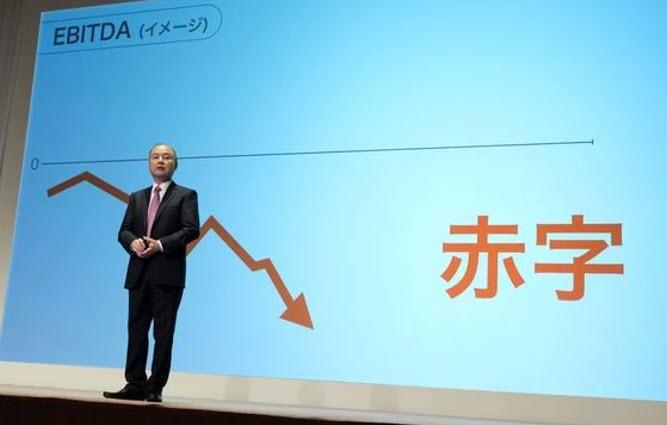SoftBank Is Beginning The New Decade How It Ended The Last
Japanese conglomerate SoftBank Group is the the 36th-largest public company in the world and second-largest in Japan. SoftBank founder and CEO, Masayoshi Son, was even briefly the wealthiest person in the world in 2000 before losing 90% of his wealth when the dot-com bubble popped.
SoftBank is mostly known in the U.S. for its investments in startups through its SoftBank Vision Fund. The Vision Fund, which was founded in 2017, is the largest technology-focused venture capital fund in the world with more than $100 billion in capital.
Son revealed last year that LPs in the fund were already up 45%, after fees, two years after the fund’s inception. The Vision Fund booked successful investments in Flipkart, which sold to Walmart for $16 billion, and Nvidia. The Vision Fund’s notable investments in Uber, WeWork and Slack were performing well on paper until they came crashing down.
Last year saw the valuations of the Vision Fund’s largest investments take losses reminiscent of the days when Son was the world’s wealthiest person.
Early last year, Uber, which had hoped to achieve an IPO valuation of $120 billion, went public at a valuation of around $75 billion. This was a disappointment to SoftBank, which invested in Uber at valuations of $48 billion and $70 billion. Uber’s current market capitalization values the ride-hailing company at approximately $58 billion.
Most notably, SoftBank dumped more than $10 billion into WeWork, driving its valuation all the way up to $47 billion before the company’s epic collapse. The IPO never happened and SoftBank ended up throwing another $10 billion at WeWork to acquire over 70% of the company in a deal valuing it at about $8 billion.
The investments pushed SoftBank to its first quarterly loss in 14 years as the Vision Fund booked an $8.9 billion loss. “My investment judgment was poor in many ways and I am reflecting deeply on that,” Son said following the earnings release.
Late last year SoftBank racked up another loss. The Vision Fund took a loss on the $300 million it invested in dog-walking app Wag at a $650 million valuation. The company simultaneously laid off 80% of its workforce. Son hinted at another loss looming at Wag during SoftBank’s earnings release. “Is there any other similar concern? In fact, yes, there is,” Son said. “Like a dog-walking company and other portfolio companies, we may see similar problems surfacing.”
The new decade finds SoftBank back where it closed out the last one.
Zume, which landed a $375 million investment from SoftBank, is laying off 50% of its workforce as it pivots from making pizza with robots to food packaging. SoftBank invested in Zume at a $1 billion valuation, which was nearly five times the startup’s previous valuation of just $218 million.
SoftBank’s reputation is now taking a hit in the startup community as the Vision Fund has walked away from a few startups that it had previously offered term sheets to. Some speculate SoftBank walked from the deals because the Vision Fund 2 hasn’t raised outside capital yet. Others believe SoftBank may still be “shell shocked” by the WeWork collapse.
As the Vision Fund closed out the decade by pushing SoftBank to its first quarterly loss in 14 years, the last thing Son wants to see is the Vision Fund’s struggles carry over into the new decade.
Tyler Durden
Sat, 01/11/2020 – 17:30
via ZeroHedge News https://ift.tt/35IQSWt Tyler Durden
